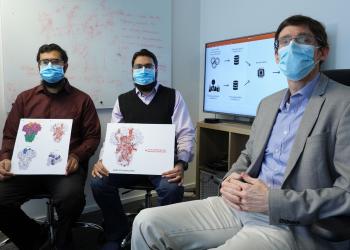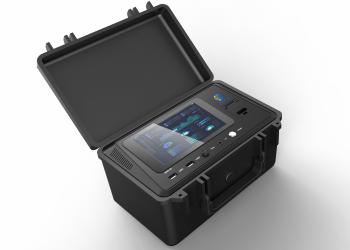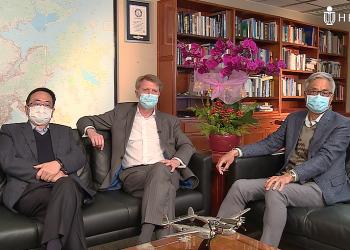News & Stories
2020
News
HKUST Develops New Smart Anti-Microbial Coating in the Fight Against COVID-19
Researchers at The Hong Kong University of Science and Technology (HKUST) have developed a Multilevel Antimicrobial Polymer (MAP-1) coating that is effective in killing viruses, bacteria and even hard-to-kill spores. MAP-1 can inactivate* up to 99.9 per cent of highly-infectious viruses such as measles, mumps and rubella, and 99.99 per cent of the surrogate feline calicivirus (FCV) - a gold standard for disinfection efficiency and is more resistant than coronaviruses such as the one responsible for COVID-19 epidemic.

News
HKUST Business School Stands Out on Gender Balance Performance
The School of Business and Management of The Hong Kong University of Science and Technology (HKUST Business School) has performed well on its gender balance among the world’s top 20 business schools, according to an analysis by 20-FIRST.
20-FIRST is one of the world’s leading global consultancy firms with a focus on promoting gender balance and organizational effectiveness. The firm believes that business schools are a key lever in the ability of companies to gender balance and their faculty members affect the mindsets of graduates when they join the business world. Of the top 20 business schools accessed, the HKUST Business School scored the highest percentage of female faculty (30% Female / 70% Male), ahead of Harvard Business School and Yale School of Management.
News
Becoming Career Ready
Dennis CHOW, a graduate of Mathematics in 2018, is a firm believer in learning by doing. And thanks to his outgoing personality and an insatiable appetite for new challenges, throughout his four years at HKUST, the young man made the most of every opportunity provided by the University to build his experiences and skills that set himself apart from his peers, and even outperformed them when they graduated.

News
HKUST Scientists Shed Light on COVID-19 Vaccine Development
A team of scientists at the Hong Kong University of Science and Technology (HKUST) has recently identified a set of potential vaccine targets which could be helpful for the development of a vaccine against the SARS-CoV-2 coronavirus – the cause of a novel pneumonia (COVID-19) outbreak which has spread to over 30 countries to date, infecting over 80,000 people and claimed over 2,600 lives*.

News
HKUST Research Team Invents World’s Fastest Coronavirus Detection Device Offering Diagnostic Results in 40 Minutes
Early detection of people infected of the novel Coronavirus has become an imminent challenge around the world as the epidemic continues to develop. A team of researchers from the Hong Kong University of Science and Technology (HKUST) recently invented the world’s fastest portable COVID-2019 detection device. With the latest microfluidic chip technology, the device can detect the virus in just 40 minutes from sampling to testing, compared to the currently-used polymerase chain reaction (PCR) technology which takes between 1.5 to 3 hours.
PCR technology is a molecular biotechnology used to amplify specific DNA fragments for the extraction of viral RNA, and the speed of temperature change is the key that determines the efficiency of the DNA’s amplification process, meaning the faster the temperature rises, the shorter the device can come up with a test result.









